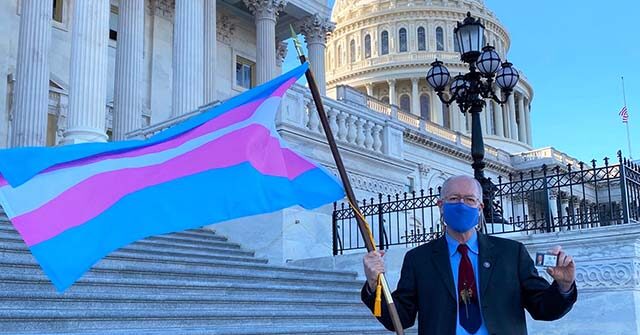Rep. Bill Foster (D-IL) is currently facing a challenging reelection campaign in a competitive swing district against Republican challenger Jerry Evans. One of Foster’s primary campaign platforms centers on women’s rights; however, critics from the Republican side argue that this stance reveals hypocrisy when viewed alongside his past actions and personal history. Foster, who has been characterized as a far-left Democrat, is being scrutinized for his support of the Equality Act, a measure he voted for in 2021 that would effectively enable men to compete in women’s sports. This legislation has drawn significant criticism for undermining female athletes’ rights by removing the distinction between male and female sports categories, potentially placing women at a disadvantage in competitive athletic environments.
The controversy surrounding Foster extends beyond his legislative votes to his personal life and marital history. In 1996, he divorced his first wife, Ann C. Foster, who publicly accused him of both physical and emotional abuse. Reports suggest she sought a restraining order against him, asserting that he had physically attacked her and created a climate of fear within their household, particularly affecting their young children. These allegations have resurfaced during Foster’s campaign as various factions, including the Illinois Republican Party, have highlighted them to question his sincerity regarding women’s rights. The juxtap of his advocacy for women’s rights while being embroiled in serious accusations of past domestic violence positions him as a controversial figure.
Kathy Salvi, the chair of the Illinois Republican Party, has emphasized the need for Foster to address his past by offering an apology for his alleged misconduct. Salvi pointed out that National Domestic Violence Awareness Month is an important time for individuals to confront their history and seek redemption for their actions. She expressed hope that Foster would not only own his past actions but that his ex-wife and other domestic violence victims could find some form of closure from his acknowledgment. The Republican narrative paints Foster’s past as a stark contrast to his current political stance, thereby questioning his commitment to genuinely supporting women.
Further complicating Foster’s position is the assertion made by his critics that he has gone to great lengths to suppress discussions surrounding his past. Allegations from Salvi suggest that there may have been an attempt for Foster to manipulate circumstances to protect his political aspirations, particularly by potentially facilitating a retraction of Ann Foster’s accusations during his congressional campaign. Salvi’s statements underscore the belief that judges do not issue restraining orders without sufficient cause, indicating that the legal implications of Ann’s accusations cannot be easily dismissed.
The backlash Foster is currently facing reflects broader tensions in U.S. political discourse surrounding feminism, equity in sports, and the accountability of public figures. His legislative support for the Equality Act is seen not only as an advocacy for gender equality but also as a contentious move that some argue undermines the very rights of women he purports to protect. The scrutiny of his past alleged behavior forces a critical examination of how personal history impacts public life, especially for someone who positions themselves as a protector of women’s rights.
In conclusion, the intersection of Foster’s personal history, his legislative agenda, and the ensuing public discourse highlights the complexity of navigating gender issues in a politically charged environment. The claims against him foster a narrative that challenges his candidacy by framing him as inconsistent and hypocritical, particularly regarding his treatment of women both in his personal life and through his political actions. As the election approaches, the interplay between his past and present continues to steer the conversation, affecting voter perceptions and potentially shaping the outcome in this contentious race.

